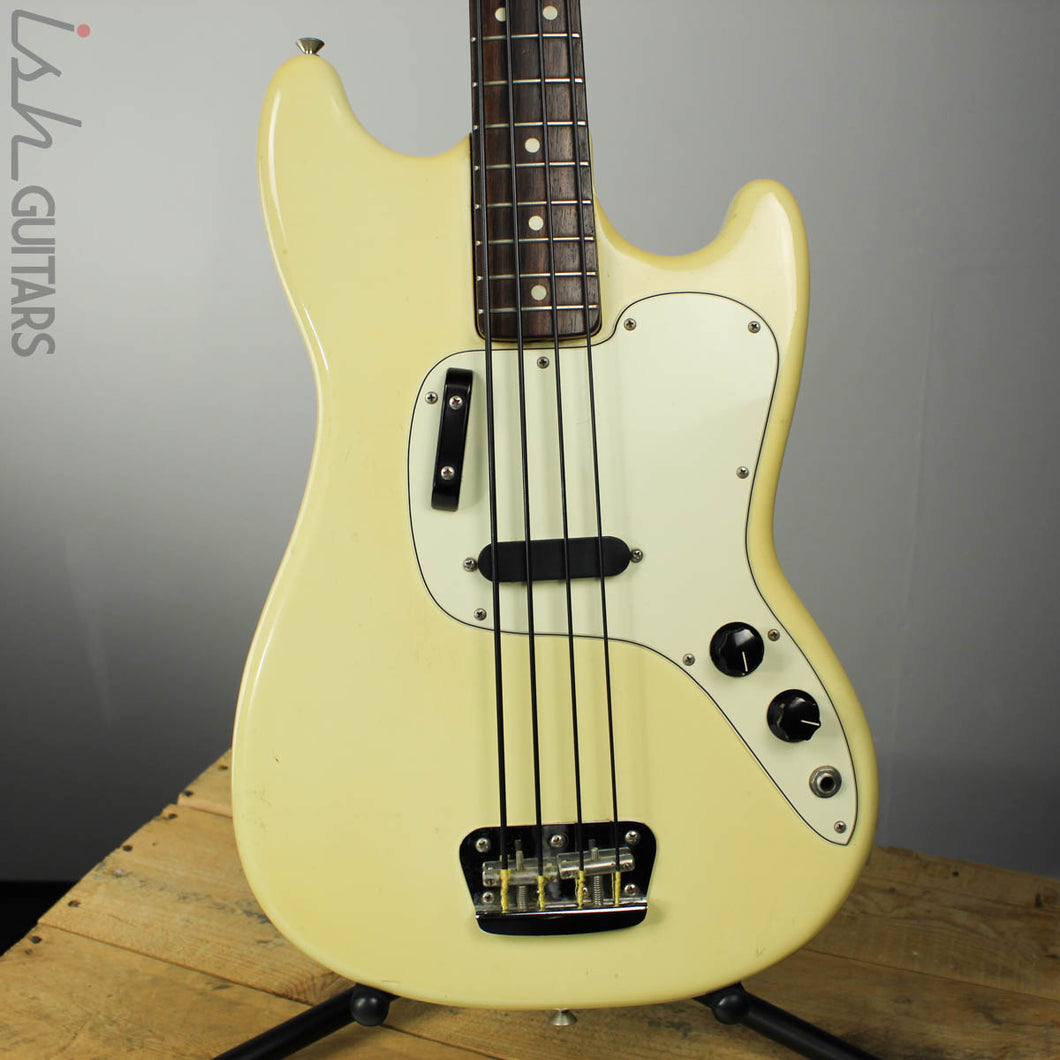

Over the course of the 70s, the Japanese output improved dramatically, and in many ways these early 70s models are a low point for the brand. These new Epiphones were based on existing Matsumoku guitars, sharing body shapes, and hardware, but the Epiphone line was somewhat upgraded, with inlaid logos and a 2x2 peghead configuration. Condition usuall marks/wear associated with 50 yr old instrument not used for some. The Matsumoku factory had been producing guitars for export for some time, but the 1820 bass (alongside a number of guitar models and the 5120 electric acoustic bass) were the first Epiphone models to be made there.

Unfortunately people are starting to realise that they are great so the price on the vintage market is going up.By the end of the 1960s, a decision had been made to move Epiphone guitar production from the USA (at the Kalamazoo plant where Gibson guitars were made), to Matsumoto in Japan, creating a line of guitars and basses significantly less expensive than the USA-built models (actually less than half the price). I have some nice other vintage basses ( Mosrite, Fender Jazz bass, Bass VI.) But I'm using the Mustang really often. My brother have an old Musicmaster, so I'm familiar with them but I don't like the tone as much as the Mustang. The guy from Air is using one as his main bass so if you want to have an idea of out it sound check any Air album.


the sound is not dissimilar to a P bass (similar pickup design) but the combination of short scale + through body strings make the tone quite special. I have the complete opposite feeling about the mustang bass. At this stage in my life I don't rule anything out. I've had musicians play on tracks with stuff I'd have never dreamed would work, only to find out that the strangeness of that track is what really made the recording "pop". It's funny sometimes what will "sit in the mix" well. It sounded beautiful, and fit the song perfectly. Recently, my bass player brought over his Ibanez 505 5 string, and did a "slap" bass track on one of our recordings on the 80-8. I bought and used a solid ash american P bass for about 15 years which always sounded nice on tape as well. I found that in certain cases short scale basses can be very effective when recording. Fender introduced the Musicmaster bass in the second half 1970, with a launch price of 139.50 - their lowest price bass to date 100 cheaper than the. The bass track sat in the mix beautifully, and to this day stands up as one of the nicer sounding bass tracks I've recorded. This made it sustain very well and gave it a brighter tone. He had installed a solid brass bridge and nut as I recall. Many years ago when I bought my Tascam 80-8, I borrowed my drummers music master bass, as I did not have a bass of my own to use. (which are also pigs imho, but that's for another thread)īut enough nostalgia: a Mustang and/or a Musicmaster sound NOTHING like a Precision or Jazz Bass.
Fender musicmaster bass value series#
I guess the nicest thing I could say about them is that they're cleaner than an EB-x series Gibson.but they have none of the character of those basses No punch, no twang, just a false sense of deep that's only seems like it's low because it's got a really disproportionate balance of upper partials. But those Fenders just kinda go "blah" when you pluck their strings. And not necessarily because they're short-scale there are a few 30" scale basses I've played that are cool for a variety of idiosyncratic reasons. If I never play another entry-level Fender bass in my life, it'll be too soon. Four years later I got a Musicmaster bass, used that for another six months or so. Used that bass in my band for about 6 months when I was 13 years old. Very first bass guitar I ever played, way back in 1974, was a Mustang.


 0 kommentar(er)
0 kommentar(er)
